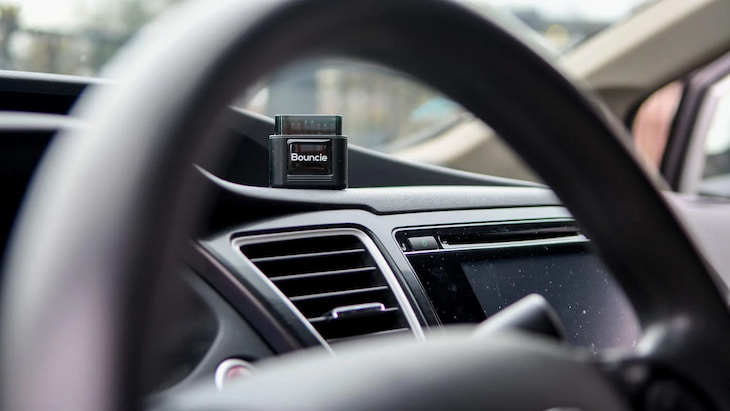15
Dec
Want to know the location of your vehicle each and every time? If you’ve answered yes, then a simple electronic device called a vehicle tracker takes care of all your worries. This easily attaches to your car, truck, caravan, trailer, or boat and uses GPS to pinpoint that vehicle’s precise whereabouts. The best part is they’re cheap to buy, simple to operate and have dozens of useful features besides tracking.
Vehicle trackers are basically portable transmitters that beam the exact location, speed, and direction of vehicles with the help of satellites. Most users will see them as inexpensive anti-theft devices, but precise vehicle GPS tracking devices offer a whole lot more.
They’re invaluable in cases of an emergency, can record detailed data of frequent routes, are used by fleet managers to assess employee performance and vehicle condition, and by wary parents lending the car to teenage children. Trackers can also remind drivers of service internals, and inform them whether the vehicle has been tampered with.
The Global Positioning System first saw use in the US military. It consists of a series of satellites in the Earth’s orbit. Its primary roles are determining position, aiding with navigation, tracking the movement of objects and people, creating detailed maps, as well as timing purposes.
The system is used in hundreds of varying fields, from aviation and seafaring to tracking fitness performance, monitoring natural climatic events, soil sampling and field mapping in agriculture, or guiding heavy machinery in mining operations. Of course, this is just scraping the surface.
Devices, vehicles, objects, people, animals, and so forth can be located in real-time, with a tracker beaming the location to a number of satellites in differing locations. Since the position of the satellites is known, the position of vehicle GPS tracking devices is calculated by the distance relevant to the satellite. To provide accurate results, the exact position is determined by triangulation or the distance of the object in relation to two or more satellites.
Just like phones, wearables, or navigation systems, a GPS tracker for your car can determine the whereabouts of your vehicle within a few centimetres of its actual position, even while travelling at speed. These are highly-effective and precise instruments.
Trackers fall into two distinct categories depending on how they work. There are GPS trackers with real-time or active tracking and those that use passive tracking:
These GPS car trackers gather info on the vehicle’s movement and location in real-time and use a mobile network (with a separate SIM) to relay that information to phones. All trackers can detect current speed, and direction and pinpoint the exact whereabouts of the vehicle.

More sophisticated units and ones directly hardwired to the vehicle ECU will also display fuel usage, routes, current vehicle condition, and any diagnostic issues. This is what rental companies and fleet owners use. And they’re the type of tracker you want in your car in case it gets stolen.
These types of vehicle GPS tracking devices record data either to a memory card or internal memory. To see any information, the devices must be physically removed and the stored information downloaded to a computer.
In general, active models are more accurate, transmitting a signal to satellites every few seconds, while passive trackers use longer intervals. This makes them cheaper, but less effective if vehicles are towed, stolen, or have been involved in emergencies or accidents.
Depending on how they’re powered, and where on the vehicle they’re placed, vehicle GPS tracking devices can be divided into OBD-port, hardwired and portable trackers. OBD trackers are plugged directly into the same port mechanics use for vehicle diagnostics. Besides the usual tracking metrics, the benefit of an OBD tracker is that users can access a berth of vehicle data, from battery status to hard braking, or unusually high emissions. They are also simple to install.
Hardwired trackers make sense in that they are powered by the vehicle battery. But they also have backup internal batteries should the main car battery run out of power. The units are no bigger than a matchbox, extremely reliable, and cheap.
If you’re switching between a few vehicles at a time, or simply need to track a car that isn’t your daily driver, consider getting a portable tracker. These have literally no strings attached, and the wireless tech makes them more versatile in placement. While the inbuilt lithium battery makes them slightly bigger and heavier, wireless trackers are all about convenience and ease of use.
Batteries last over a week with extensive use and are recharged via a USB port. To get your money’s worth, ensure that any tracker you buy is made of quality materials and can stand the rigours of daily driving. A tracker should be water and impact-resistant, with high IP ratings.
• Geofencing – This handy feature establishes a virtual boundary or perimeter set by the user, and sends alerts that the tracker and vehicle have passed designated areas. It’s ideally used in tracking fleet vehicles or in helicopter parenting when lending the car to children.
• Alerts – Get notifications directly on your phone that the vehicle has been moved, doors or windows opened, or that it has sustained damage. Inbuilt sensors can inform whether the vehicle has been tampered with.
• Multiband Tracking – For better precision ensure that the tracker is also capable of using other satellite tracking systems besides GPS, like GLONASS and BeiDou.